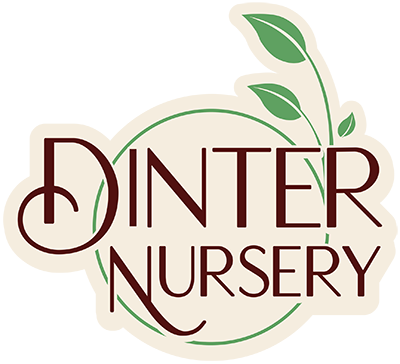Gardening in the Winter
Winter is a quiet time at Dinter Nursery when we recharge ourselves and prepare for spring. Many of our plants have been tucked away for protection from any severe weather. Here are some of our tips for gardening during winter.
Gardening can be done almost year round in our area. Some of the things that will be happening include:
Seed racks will be available in January.
The free seed catalogue from West Coast Seeds will also be available then. This is a valuable reference for anyone growing vegetables.
Fruit trees in bare root condition can be planted on any mild, damp day. There will be many suitable days during the winter. Extra stock arrives by mid-February. Check out our Fruit Tree page for what we carry.
Trees and shrubs can be safely planted if the ground is not frozen. We have lots of hardy plants on hand.
Dormant spraying with copper or a mixture of lime sulphur and oil will protect fruit trees from over wintering pests and diseases.
Garden beds can be covered with soil conditioners such as compost or Sea Soil during the winter. This will smother hardy weeds and enrich the soil for spring.
Finally winter is a good time to sit back and reflect on your garden and plan for the coming season. Read a good gardening book for inspiration on what to do in your garden next season.
What if cold winter weather arrives?
A few minutes protecting tender plants can save you from a lot of expensive plant losses. If the forecast is for -10 degrees or lower, get out into the garden to protect these plants.
Heavy snow provides good protection against the cold, but it can do severe damage by breaking branches. Brush the snow off these plants when you are out shovelling.
Be aware which plants may require protection. Commonly planted tender plants include Palm Trees, New Zealand Flax, Dracaena, Eucalyptus, Hebe and Fatsia. In extreme temperatures we see damage to Escallonia, Roses, Viburnum, Kiwi, Everygreen Magnolia, Euonymus and other broadleaf evergreens. Covering the base with mulch is enough to protect some, while others need to be wrapped from the freezing wind.
Loosely branches evergreen shrubs, such as the popular Emerald Cedar should be tied together to prevent snow from pulling the branches apart.
Vegetable Planting Chart for Coastal BC
We are getting many enquiries as to what to seed and when, or what to plant and when! Luckily, West Coast Seeds has provided an excellent planting chart for our area. To view their planting chart which includes information on when to start your seeds indoors, when to direct seed outdoors, when to transplant, cover your seedlings and transplant and cover your vegetables view their chart here.
For more information on growing vegetables from seed view our resource page here.

